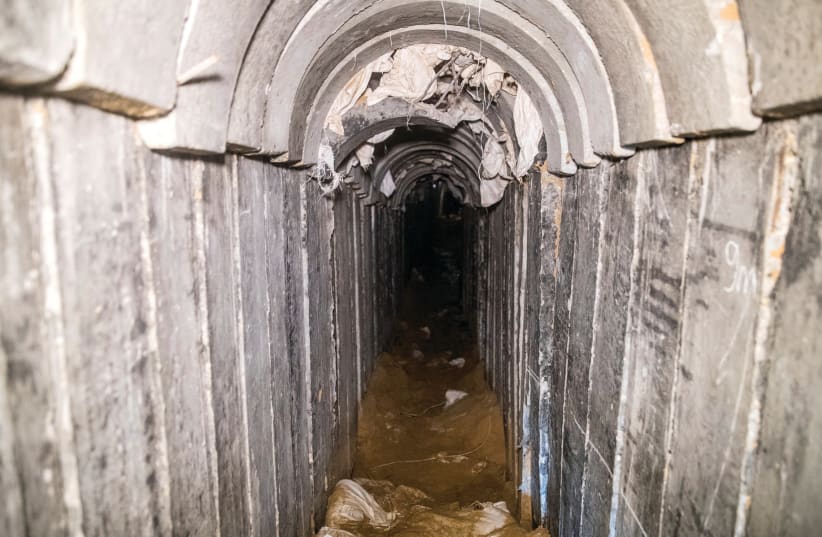ARTICLE AD BOX
“Their immune systems are compromised, so any winter illness or respiratory infection, including viruses like the flu or COVID-19, could be devastating."
By EVE YOUNG NOVEMBER 10, 2024 18:46 A general view of the interior of a cross-border attack tunnel dug from Gaza to Israel, near Kissufim, seen on January 18, 2018
(photo credit: REUTERS/JACK GUEZ)
A general view of the interior of a cross-border attack tunnel dug from Gaza to Israel, near Kissufim, seen on January 18, 2018
(photo credit: REUTERS/JACK GUEZ)
Winter poses a new set of life-threatening risks to the hostages held by Hamas, according to Hostage Family Forum medical team head, Prof. Hagai Levine.
“The hostages are already weakened; they have lost body fat and muscle, which means they have less ability to keep normal body temperature,” Levine said, explaining that this puts them at “serious risk for hypothermia and frostbite.”
A lack of proper nutrition makes this worse by causing deficiencies in vitamins and minerals, which could lead to heart issues for the hostages, he added.
“Their immune systems are compromised, so any winter illness or respiratory infection, including viruses like the flu or COVID-19, could be devastating,” Levine added.
“On top of that, winter conditions mean high increased dampness in the tunnels, which severely threatens respiratory health.
“The harsh, cold, and unsanitary conditions increase their risk of hypothermia, pneumonia, and other serious illnesses, especially as they suffer from significant weight loss and malnutrition that weakens their immune systems and overall physiological resilience. The conditions of their captivity mean that the hostages are in a life-threatening situation," Levine stressed.
Hostages with chronic illnesses at grave risk
Many of the hostages also have chronic illnesses, including asthma, diabetes, and heart disease, Levine said, stressing that they do not have the proper treatment for these conditions in captivity.
Medical professionals were able to learn about medical implications for the hostages from those released or freed and from those who did not survive, Levine said.
“Captivity poses critical threats.” In addition to the specific threats posed by winter conditions, the hostages face many other risks.
“They are enduring severe malnutrition, poor hygiene, lack of medical treatment, and relentless psychological pressure. These individuals are in constant pain, both physically and mentally, with untreated injuries that worsen over time, leading to more complications and suffering,” Levine said.
Stay updated with the latest news!
Subscribe to The Jerusalem Post Newsletter
“Untreated injuries such as shrapnel wounds and gunshot traumas or even just cuts can lead to severe infections or life-threatening complications without proper medical care,” Levine explained, adding that “many have injuries from the abduction that have not been treated properly.”
Threatened by physiological threats
He also highlighted the psychological impacts of captivity, which pose a significant risk to the hostages and make them less able to handle the physical threats.
“Psychologically, the effects of isolation, intimidation, and exposure to violence create a persistent state of hyper-arousal and trauma, adding to their suffering and diminishing their ability to cope. The conditions of captivity foster high vulnerability to long-term physical and mental health damage.”
The winter could worsen this damage, he said, explaining that winter “could be another challenge for their mental health.”
Levine highlighted that the situation could be “more severe” for the female hostages.
This is “due to the risk of sexual violence and its physical and mental impacts, including the possibility of rape-induced pregnancy.
“The current medical situation of the hostages is beyond alarming – it is critical and worsening with each day they remain in captivity,” he added.
“The reality is harsh: Without urgently reaching a deal for their release, more lives will be lost. This situation is not just difficult; it is unbearable, and the consequences are becoming more severe with every passing moment,” he said. “Their lives are in immediate danger.”

 3 months ago
201
3 months ago
201







 English (US) ·
English (US) ·